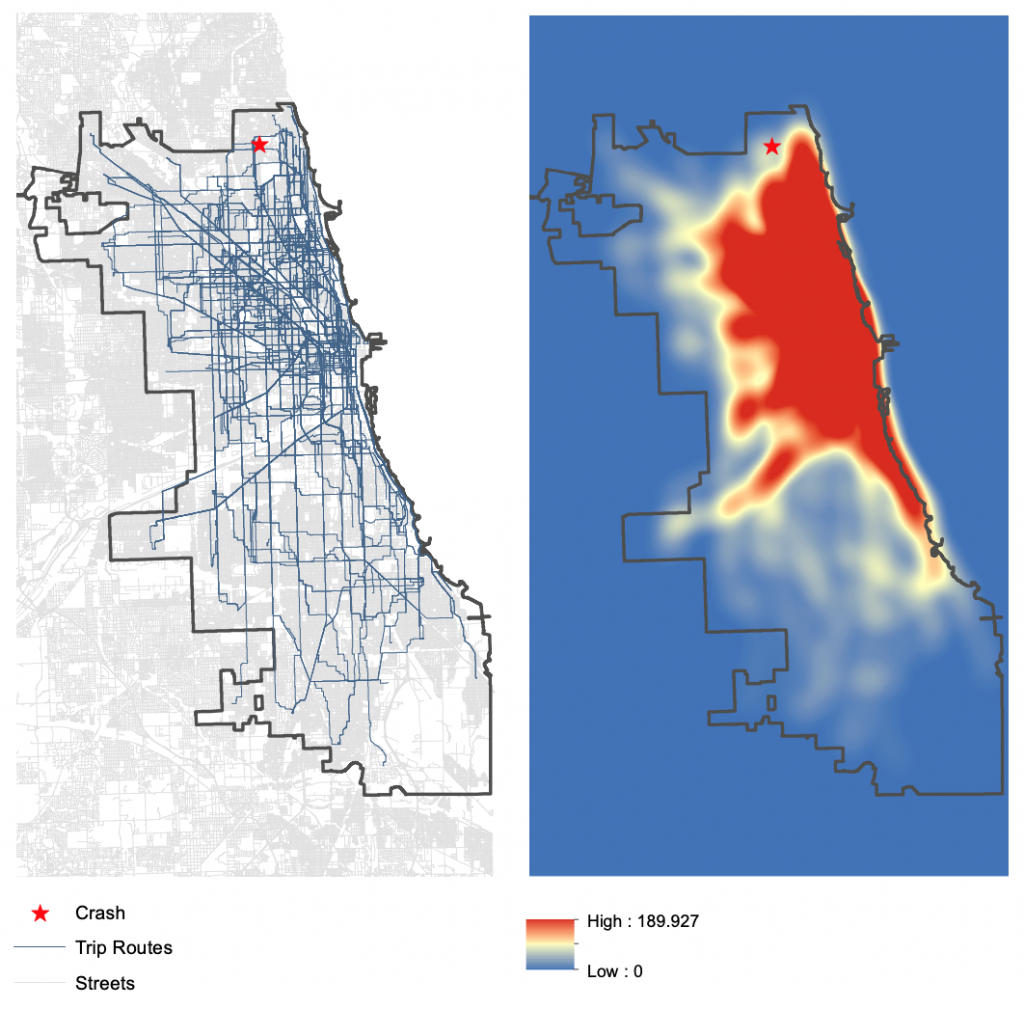Morrison and colleagues recently published a paper reporting on a case-case analysis of rideshare activity near alcohol-involved and non-alcohol-involved car crashes in Chicago. The observed higher level of rideshare activity near crashes that did not involve alcohol suggests that ridesharing may replace motor vehicle trips by alcohol-impaired drivers.
The alcohol-involved car cases were 962 crashes that the police report indicated were alcohol involved, which were compared to 962 1-to-1 matched crashes reported not to involve alcohol, that occurred in the same Census tract as the alcohol-involved crash. Morrison and colleagues tested whether the density per square mile of rideshare trips (Lyft and Uber) that were in progress nearby, at the time of the crash, predicted car crash type. Rideshare trips underway at the time of the crash were calculated using data on trip start and stop times and locations reported to the City of Chicago by the ride share companies. Trip routes were estimated using the shortest drive distance between the start and stop location.
Mean rideshare trip density was 69.0 per square mile (SD = 129.7) at the time and location of alcohol-involved crashes and 105.7 per square mile (SD = 192.6) at the time and location of non-alcohol-involved crashes. After controlling for covariates, it was found that a standard deviation increase in rideshare trips per square mile at the crash location was associated with 23% decreased odds that the crash was alcohol involved (95% confidence interval 0.594, 0.878). These results suggest that ridesharing may replace motor vehicle trips by alcohol-impaired drivers.

Estimated route path and kernel density layer for rideshare trips that were active at the time of one crash. Crash location denoted by the red star. Raster value interpreted as density of active rideshare trips per square mile at the time of the crash.

